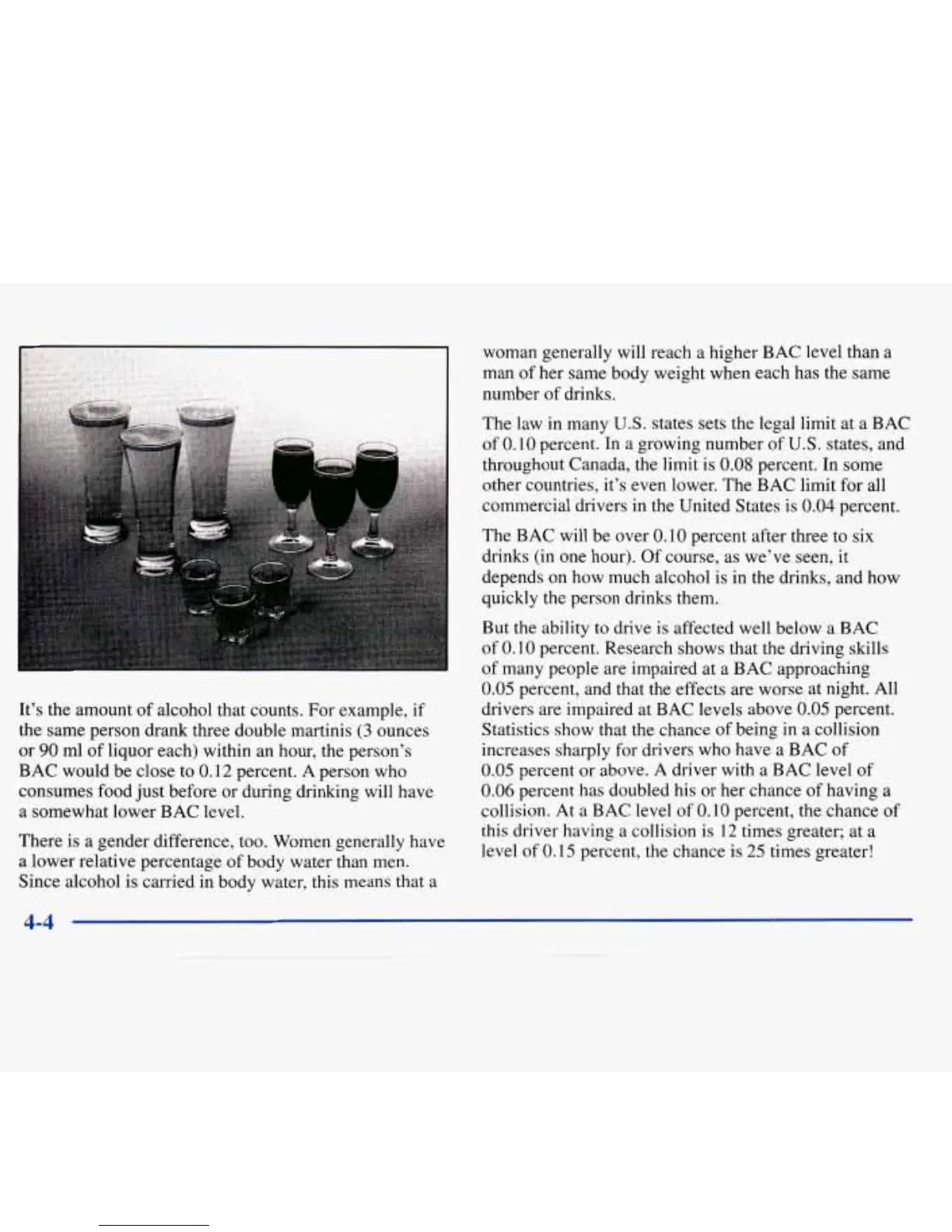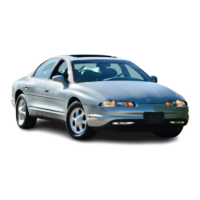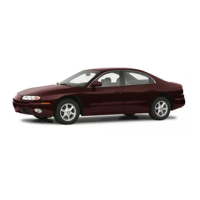It’s the amount of alcohol that counts. For example, if
the same person drank three double martinis
(3
ounces
or
90
ml of liquor each) within an hour,
the
person’s
BAC would be close to
0.12
percent. A person who
consumes food just before or during drinking will have
a
somewhat lower BAC level.
There is a gender difference, too. Women generally have
a lower relative percentage of body water than men.
Since alcohol is carried in body water, this means that
a
woman generally will reach a higher
BAC
level than
a
man of her same body weight when each has the same
number
of
drinks.
The law in many
U.S.
states sets
the
legal limit at a BAC
of
0.10
percent. In a growing number of
U.S.
states, and
throughout Canada,
the
limit is
0.08
percent.
In
some
other countries, it’s even lower. The BAC limit for all
commercial drivers in the United States
is
0.04
percent.
The BAC will be over
0.10
percent after three to six
drinks (in one hour). Of course, as we’ve seen, it
depends on how much alcohol is in the drinks, and how
quickly the person drinks them.
But the ability
to
drive is affected well below a BAC
of
0.10
percent. Research shows that the driving skills
of many people are impaired at a BAC approaching
0.05
percent, and that the effects are worse at night. All
drivers are impaired at BAC levels above
0.05
percent.
Statistics show that the chance of being in a collision
increases sharply for drivers who have a BAC
of
0.05
percent or above. A driver with a BAC level of
0.06
percent has doubled his or her chance of having a
collision. At
a
BAC
level
of
0.10
percent, the chance of
this driver having a collision is
12
times greater; at a
level of
0.15
percent, the chance is
25
times greater!

